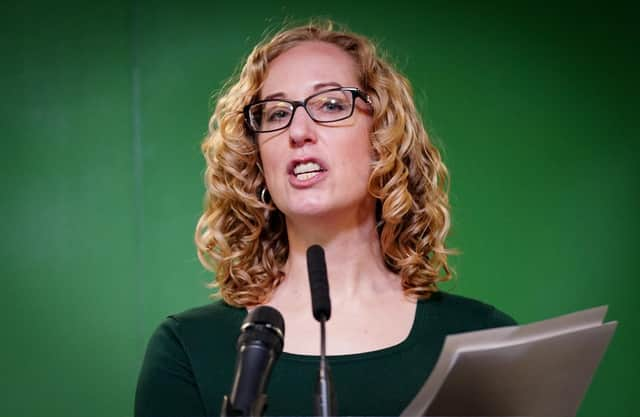Elizabethan era now faces a climate crisis - Lorna Slater


These have all been vital and welcome changes that have had a transformative impact. However, they have not been matched by a concern about the environment around us. Over the last 70 years we have seen our seas rise, deserts drying-up and biodiversity being lost to the impact of climate change.
One of the biggest shifts in Scotland during this time was the huge expansion of the oil and gas sectors.
Advertisement
Hide AdAdvertisement
Hide AdIt didn't happen overnight. There has been commercial oil extraction in the North Sea since the 1850s, but the boom of the 1960s and 70s saw many of the world's biggest fossil fuel companies setting up operations.
It hasn't only happened in Scotland. The oil and gas industries are global, and so is their impact. All around the world we are seeing the reality of climate catastrophe.
Europe has just had its hottest summer on record. Parts of London have literally been burning while we have seen wildfires, droughts and climate-related deaths across our continent.
At the same time, there has been horrific flooding in Pakistan, which has created a humanitarian emergency. Thousands of lives have been lost, with 300,000 homes destroyed and medical experts warning that rising temperatures will see the spread of disease.
Advertisement
Hide AdAdvertisement
Hide AdWithout immediate action, these extreme weather events will only become more common. We all have a part to play in cutting emissions, but it is the governments and companies that are responsible for the pollution that will need to make the biggest changes.
That is why it was so alarming to see the new Prime Minister, Liz Truss, announcing a plan that includes a £100 billion subsidy for some of the world's biggest energy companies while granting over 100 new licences for drilling in the North Sea.
Her support for fracking is equally concerning. It may not directly impact Scotland, where fracking will remain banned, but bad decisions in one country impact us all.
Scotland is well placed for change. We have 25 per cent of Europe’s potential offshore renewable resources and can be at the forefront of the green revolution.
Advertisement
Hide AdAdvertisement
Hide AdWe have the greenest government that Scotland has ever seen, with record investment in renewables, recycling, nature restoration, free bus travel for everyone under 22 and infrastructure for walking, wheeling and cycling.
We have established a £500 million fund for Moray and the North East to ensure a just transition for workers and the communities that have been at the heart of the oil industry.
There was nothing inevitable about the fossil fuel age, just as there has never been anything inevitable about climate breakdown. They are the results of decisions that have been made by small groups of people who are least likely to be impacted by the ever-worsening effects.
The same level of determination and focus that has been put into extraction needs to be put into decarbonising our economy. However, it is a transition that will need money, resources and the full support of all levels of governments in the UK and beyond.
Advertisement
Hide AdAdvertisement
Hide AdIf the Queen's reign oversaw the expansion of human rights then Charles III's era must be one that sees environmental justice and social justice working together to build the fairer, greener future we need.
Lorna Slater is a Lothian Green MSP and Minister for Green Skills, Circular Economy and Biodiversity
Comment Guidelines
National World encourages reader discussion on our stories. User feedback, insights and back-and-forth exchanges add a rich layer of context to reporting. Please review our Community Guidelines before commenting.